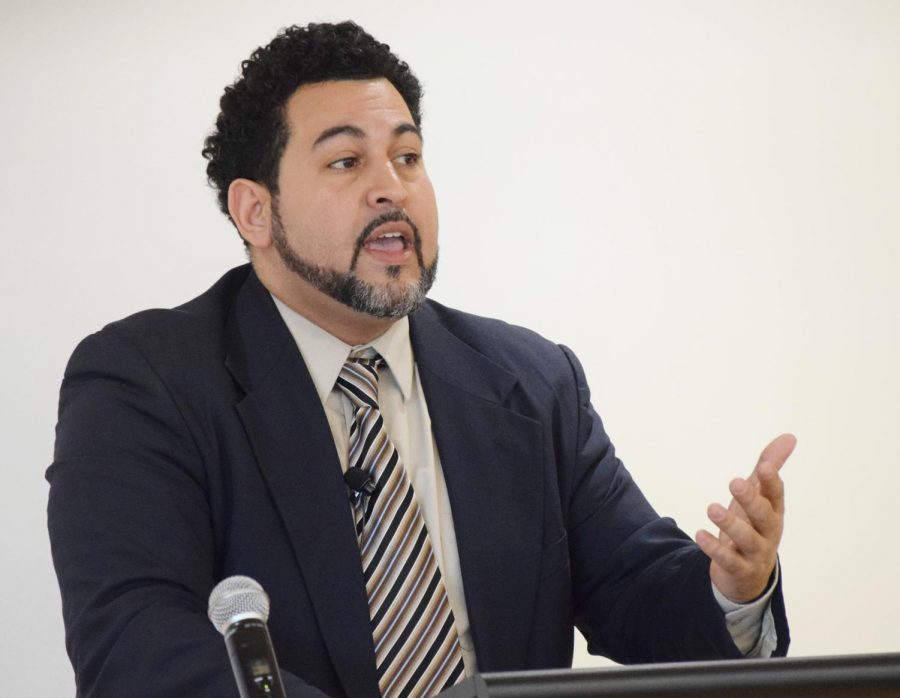AVP candidate stresses diversity for top schools
Benitez says self reflection is crucial for WSU to improve
MICHAEL LINDER | THE DAILY EVERGREEN
Michael Benitez, Jr., chief diversity officer and dean of diversity and inclusion at University of Puget Sound, talks about his qualifications and ideas.
February 23, 2018
The second candidate for associate vice president of community, equity, and inclusive excellence spoke Wednesday about what he expects from universities trying to improve student relations, diversity and retention.
Michael Benitez Jr. is currently the chief diversity office and dean of diversity and inclusion at University of Puget Sound in Tacoma.
“I think that a school needs to be attentive to diversity by prioritizing improved retention of students from underrepresented and minoritized groups,” Benitez said. “In the same token, it’s important that the institution take the particular attention to students from predominant backgrounds so that those students are also part of that conversation.”
He said any institution with high aspirations needs to ensure its faculty and staff representation reflect the student body.
When he thinks about community, equity and inclusive excellence, Benitez said, he thinks about cultivating campus climate. He said a university should intentionally work toward creating a welcoming community and supporting systematic transformation based on principles of equity and inclusion.
“Those concepts do not exist without each other,” he said. “Without equity, there is no inclusion. Without inclusion, there is no equity.”
Benitez said many top schools view equity and inclusion as something seamlessly woven into their identity. He stressed that institutions must think about what equity, community and inclusive excellence look like.
“Inclusion is not just thinking about everybody, but also seeking to readdress who was left out, and how we intentionally invite both voices to the decision-making table.”
He pointed out the Honors College’s retention rate of 92 percent. He said he wants to know what attention was paid to the Honors College that was not paid to colleges with lower retention rates.
“A top-25 institution engages in continuous practice of self-study and self-assessment,” Benitez said. “If an institution is not willing to put itself by the mirror and look [inward] … how is it going to know how it’s doing?”









